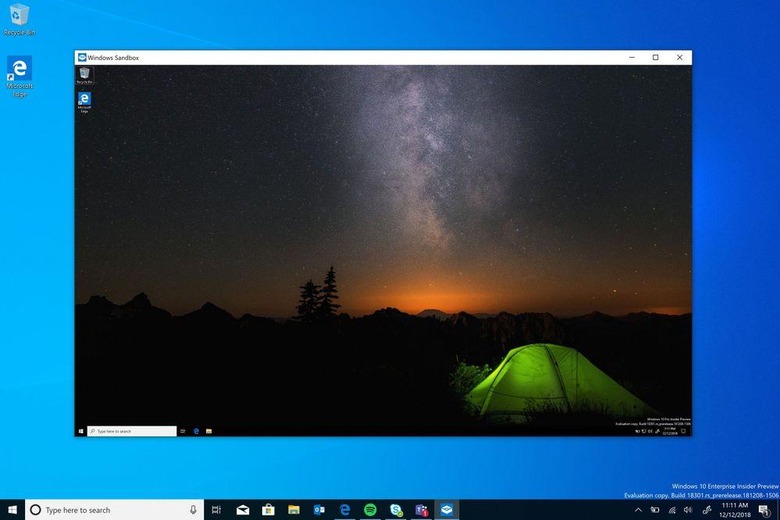Windows Sandbox Makes Questionable Software Safer
The world we live in is one that's filled with questionable executable files – not obviously dangerous, but maybe not completely safe either. Microsoft is looking to make it easier for users to test these files with a new feature called Sandbox. It isn't available to everyone yet, but when it arrives, it'll make it'll help users ensure that untrusted software or websites are actually safe.
At the moment, Windows users who prefer to err on the side of caution generally need to run that software on a virtual machine. Windows Sandbox will accomplish pretty much the same thing as those virtual machines, giving users an isolated Windows environment within which to test that software.
Microsoft explained Sandbox in a new blog post to its tech community. The team responsible for Sandbox describes it as "an isolated, temporary, desktop environment where you can run untrusted software without the fear of lasting impact to your PC." The software you launch in Sandbox stays partitioned off from the rest of your PC, and everything is deleted once you close your Sandbox instance.

Microsoft said that everything needed to run Sandbox will be available within Windows 10 Pro and Enterprise, and that it'll use the company's hypervisor to run Sandbox on a separate kernel from your host PC. At first, it's only going to be available to Windows Insiders through build 18305, and there are some system requirements if you want to run Sandbox on your PC. You'll need to have virtualization capabilities enabled in your BIOS, along with at least 4GB of RAM, 1GB of available storage, and 2 CPU cores (though Microsoft recommends 8GB of RAM and 4 CPU cores with hyperthreading).
If you're a Windows Insider and you want to take Sandbox for a spin once build 18305 is available, Microsoft has quick start instructions in its announcement post, along with a detailed breakdown of how it built Sandbox and how it functions. It'll probably be a while before we see Sandbox land in the live version of Windows, but we'll keep an eye out more news on that front.
